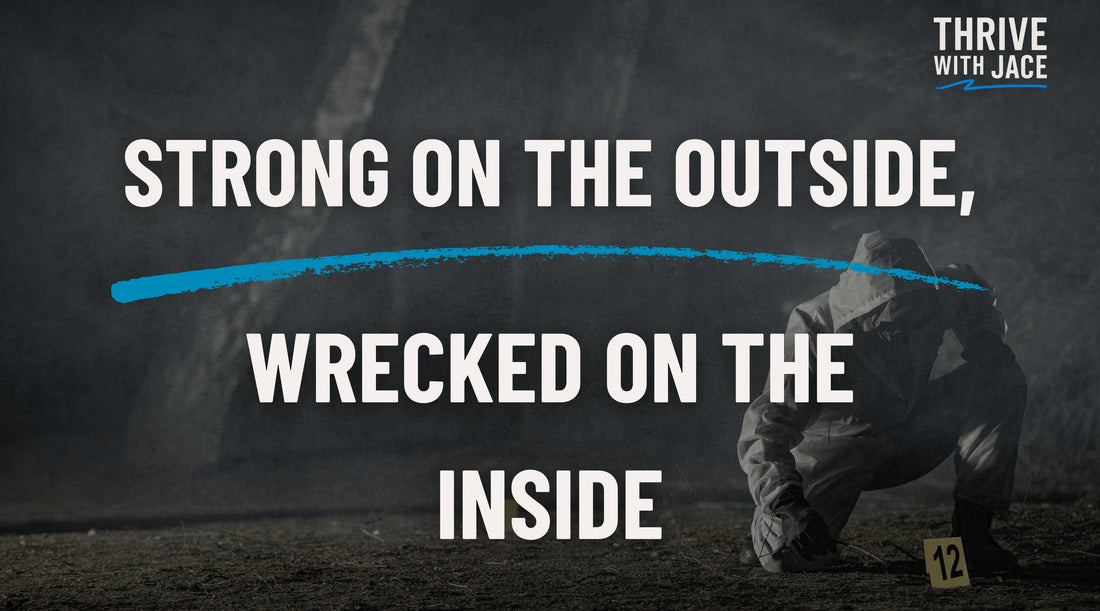
Strong on the Outside, Wrecked on the Inside
Share
You can look like you’ve got it together.
You can lead, show up, solve problems, hit deadlines, train hard, speak well — all while quietly falling apart inside.
And no one would ever know.
That’s the dangerous part.
Because in high-pressure environments, outer strength becomes your mask.
And eventually, you wear it so well that you forget it’s a mask at all.
I Know the Mask Well
I’ve shown up to scenes that would wreck most people and handled them with absolute calm.
Managed crisis. Supported teams. Held things together.
All while mentally running on fumes.
Because the strong ones don’t break, right?
Except we do.
Just differently.
We fracture inward.
In silence.
Because we’ve trained ourselves to push through no matter what.
And eventually, that becomes the standard. Push through. Keep moving. Don’t feel. Don’t crack.
But here’s the problem:
Just because you can handle it doesn’t mean you should have to — especially without support, structure, or recovery.
Outer Strength Is Easy to Fake
You can lift heavy.
Smile at the right time.
Nail the performance.
Crack the joke.
Say “I’m fine” and make it believable.
Meanwhile, you’re emotionally flatlining.
You’ve lost joy. Lost clarity. Lost connection.
You’re constantly running calculations in your head about how much longer you can keep going before something gives.
And what’s wild is you don’t look like you’re struggling.
Which makes it worse.
Because if you’re the one who’s “always got it together,” no one checks in.
No one suspects a thing.
And when you finally do say something, people act surprised — or worse, they brush it off.
The Cost of Living Like This
You lose more than just energy.
You lose access to yourself.
Your body feels off, but you ignore it.
Your emotions feel distant, but you push through.
Your mind’s scattered, but you mask it with caffeine, workouts, overfunctioning.
That’s not strength. That’s survival.
And if you keep living like that, two things happen:
1. You disconnect from your needs completely
Your ability to rest, reset, or even recognise what you feel — it all fades.
2. You start resenting everything
The job. The people. The routine. Even the things you used to love.
It’s not because you don’t care.
It’s because you’ve been operating with no margin. No time. No space. No breathing room.
That’s not resilience. That’s emotional erosion.
So What’s the Fix?
Not quitting.
Not disappearing.
Not waiting for it to get so bad you’re forced to stop.
The fix is reconnecting.
With your body. Your values. Your system of support. Your core.
And rebuilding your definition of strength from the inside out.
Physical Strength Is Only Half the Picture
You can be ripped, fast, fit, and still emotionally weak.
Because strength without self-awareness is just a well-armoured shutdown.
What makes someone resilient isn’t how much they can carry.
It’s how well they recover, adapt, and stay connected to what actually matters.
That means learning:
When to say no
When to ask for help
When to stop performing and start processing
When to stop hiding behind being “the capable one”
Try This: The Honest Strength Audit
You don’t need to overhaul everything. Just start here:
1. Check Your Energy Inputs
Are you getting enough sleep, hydration, proper food, movement?
Not for aesthetics — for recovery.
2. Check Your Emotional Connection
When’s the last time you told someone the truth about how you’re really doing — without minimising it?
3. Check Your Resentment Levels
Are you quietly pissed off at everything?
That’s your body telling you it’s overwhelmed, not ungrateful.
4. Check Your Identity
Are you clinging to being “the strong one” because you’re scared of what happens if you’re not?
Strength isn’t static.
You’re allowed to evolve.
You’re allowed to need.
You’re allowed to be supported.
This Is Where Emotional Intelligence Comes In
You’ve built the physical resilience. That’s clear.
But emotional intelligence is what takes it deeper.
It’s not about being soft.
It’s about being smart enough to know when your performance is a mask — and brave enough to take it off when it’s costing you too much.
The strongest people I know aren’t the ones who pretend to be fine.
They’re the ones who recognise the warning signs and act before they crash.
Ready to Drop the Act?
If this blog hit a little too close to home, here’s where to start:
✅ The 3-Day Resilience Reset
This free email series helps you reconnect with yourself fast — mentally, emotionally, physically. Just 10 minutes a day.
📖 The free 30-page preview of Thrive in Chaos
There’s a whole section on emotional control, physical resilience, and the shift from surface strength to actual grounded power. You’ll know after one page if it’s what you need.
🧠 The Resilience Rapid Response Kit
Includes tools for burnout checks, energy audits, and a printable reset plan for high-stress weeks. Use it before things fall apart — or when you feel like they already have.
Final Word
You can keep faking it.
Keep showing up strong while quietly falling apart.
Or — you can choose a different kind of strength.
One rooted in honesty.
One backed by values.
One that can carry the weight and know when to set it down.
Because strength isn’t what holds it all in.
It’s what sets you free.
